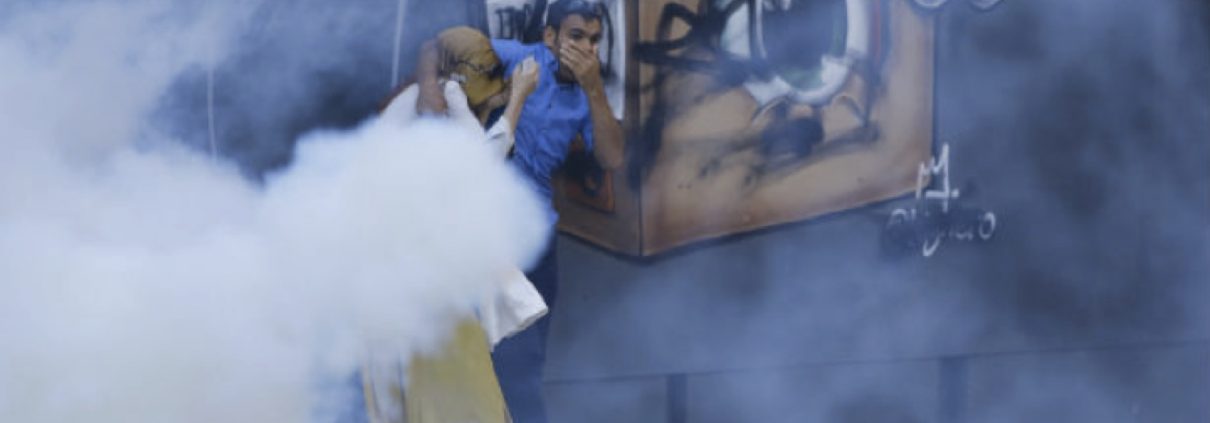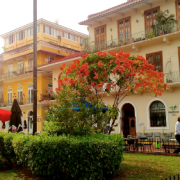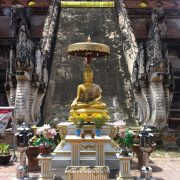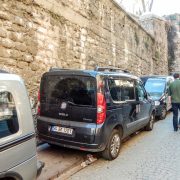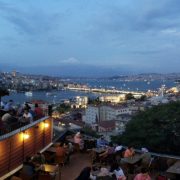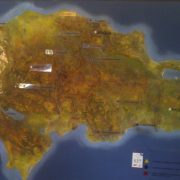Living in Istanbul
By Carmen Chen MURP ’16
First, let me preface this post by saying that I am not a political person. I am not an activist and for the most part do not keep up with current events. However, since living in Istanbul, there is no denying the political undertone that takes part in everyday life.
For the past month, I’ve been living in the neighborhood of Cihangir. Referred to as one of Istanbul’s “hippest neighborhoods,” it is home to many artists, writers, celebrities and expats. At the same time, it is also home to a new anti-government protest culture that emerged following the Gezi Park protests in 2013. If there is a protest in Istanbul, it is likely to take place in Cihangir, and usually with teargas.
Several weeks ago, I was getting dinner in Cihangir with a Turkish friend when we passed by a group of people dressed in black with bandanas covering their faces. As we continued walking, we encountered more demonstrators who were setting off fireworks and smashing ATM machines and parked police vehicles with what looked like police batons. My friend then told me to walk faster in order to escape the tear gas that the police were sure to fire. Apparently, “It’s not a protest in Turkey if there isn’t tear gas.”
As some of you may have guessed, this protest was in response to the ISIS suicide bomb attack in Suruç on Kurdish students who were rallying to offer assistance to displaced residents of Kobane, a neighboring Syrian town. The pro-Kurdish demonstration I witnessed demanded the Turkish government to provide greater action against ISIS. The picture you see above is of a couple trying to escape tear gas during the protest (I didn’t think it was wise to stop and take a picture, so it’s from an online news article).
Although I have not witnessed other protests and avoided typical demonstration areas, my internship office was closed for half of last Thursday due to our proximity to Taksim Square, where the last protest began. The Istanbul Police Department warned of possible attacks on crowded areas, such as Taksim Square, after Turkey began airstrikes on ISIS and the PKK. Fortunately, there has been no such attack and life in Istanbul continues as normal. While I have not felt in danger during my time here, the protest I witnessed serves as a constant reminder of the political tension and polarization that is inherent in Turkish life. Still the greater question remains: How is life in southern Turkey, where the regions share a border with Syria and the threat is much greater?

